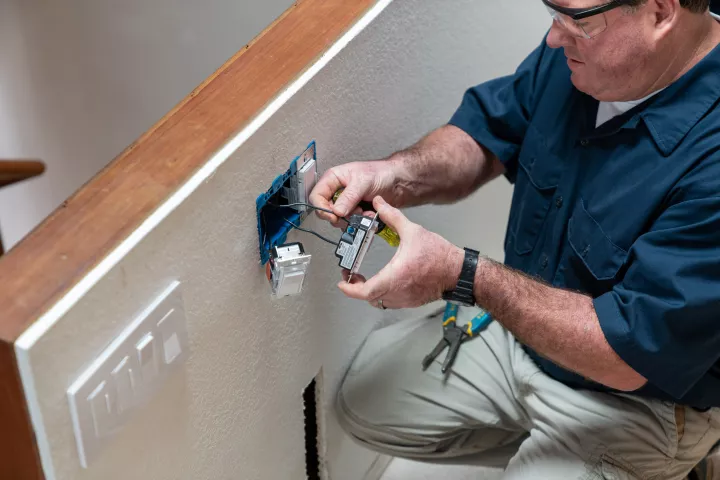Can a tenant leave the property before the tenancy ends?
Before leaving a tenancy, tenants must give their landlord written notice. The amount of notice they must give depends on how long they have lived in the property.
However, if a tenant signed a tenancy agreement, they committed to a legally binding contract. If the tenant leaves before the end of this contract, they continue to be responsible for paying the rent until the:
- tenancy agreement ends or
- landlord rents the property to other tenants
The risks of leaving a tenancy early
If the tenancy ends early, in most circumstances, the landlord will be entitled to keep the deposit to cover the costs of renting the property to a new tenant.
The landlord is also entitled to rent payments if the property is empty while they look for a new tenant.
If the tenant does not make these rent payments, a landlord can pursue the tenant, or their guarantor through Small Claims Court.
A Small Claims Court judge will expect to see evidence that the landlord has taken reasonable steps to mitigate their loss. A landlord in these circumstances should:
- advertise the property for rent
- facilitate viewings of the property
- offer the tenancy to a suitable applicant
When new tenants move into the property, the old tenant's legal obligation to pay rent ends.
Options for tenants who want to leave a tenancy early
It can be upsetting for tenants to find that they cannot leave a tenancy early without being liable for the rent.
Tenants who are considering leaving early have three options. They can:
- use the break clause in the agreement, if there is one
- try to negotiate with the landlord to end the tenancy early
- Show the landlord breached the agreement and they have not put it right
Does the tenancy agreement have a break clause?
Some tenancy agreements include a break clause that allows it to end early. If a break clause is included in a tenancy agreement, it must allow both the tenant and the landlord the same opportunity to break the contract.
A clause allowing a landlord to end the tenancy early but not the tenant, would breach the Unfair Terms in Consumer Contracts Regulations 1999.
Most break clauses will include conditions if either party want to use them. For example, the:
- tenant may be required to find a new tenant or
- landlord may be required to allow a rent-free period to assist the tenant in accessing a new tenancy
Not all tenancy agreements have a break clause and may include different conditions. Tenants should read their tenancy agreements carefully and contact Housing Rights if they are unsure if there is a break clause they can use.
Getting permission to leave a tenancy
If the contract does not include a break clause, tenants should try to negotiate with their landlord if they are unable to continue the tenancy.
Landlords may agree to end the tenancy early if the tenant:
- finds a suitable replacement tenant or
- agrees to cover the costs of advertising the property
If a landlord and tenant reach an agreement, it is important to get it in writing and, where possible, have the landlord sign it.
In recent weeks, our helpline has received calls from tenants who have been asked to pay large amounts before being released from their tenancy agreement. Tenants should get advice from housing rights before agreeing to make these payments.
Ending a tenancy if the landlord is in breach of the contract
Tenants often want to end their tenancy early if the landlord has breached their obligations. This happens most often because of difficulty getting repairs done.
If a tenant feels their landlord has breached the terms of the contract, they must:
- inform the landlord of this breach and
- give the landlord the opportunity to put it right
Tenants should tell their landlord about repairs as soon as possible. If they are having problems getting repairs carried out, tenants should:
- take photographs of things that need repairs
- put everything in writing even if they have spoken to the landlord about the problem
Some tenants will decide to leave a tenancy early if this process is not successful. Even when a landlord has not met their obligations, they may still attempt to take a tenant to Small Claims Court for unpaid rent.
A tenant may be able to argue they were justified in leaving the tenancy early because the landlord breached the agreement. A Small Claims Court judge will want to see:
- evidence of repair issues and
- copies of letters or emails sent to the landlord about the disrepair
Getting the tenancy deposit back if a tenant leaves early
Tenants who leave a tenancy early often struggle to get their deposit back.
It may be reasonable for a landlord to retain a deposit in these circumstances, especially if the tenant left without the landlord’s permission and had no break clause.
If a landlord asks for a deposit at the beginning of the tenancy, they must protect the deposit with one of the following companies:
The deposit protection schemes can adjudicate if a tenant disagrees with the landlord’s decision about a deposit. However, in general, the schemes will favour the landlord in a dispute about leaving the tenancy early.
When a tenant leaves early because they believe the landlord is in breach of the agreement, they can try to get their deposit back through Small Claims Court instead.
A small claims judge will want to see evidence of the breach of tenancy, such as evidence of disrepair in the property that the landlord has not dealt with.
Tenants should always get advice before breaking their tenancy agreement.
Make private renting better
Renters' Voice is a group of people who rent privately in Northern Ireland. They campaign for improvements in the private rented sector by influencing politicians and government.
Find out more about Renters' Voice and how to get involved

